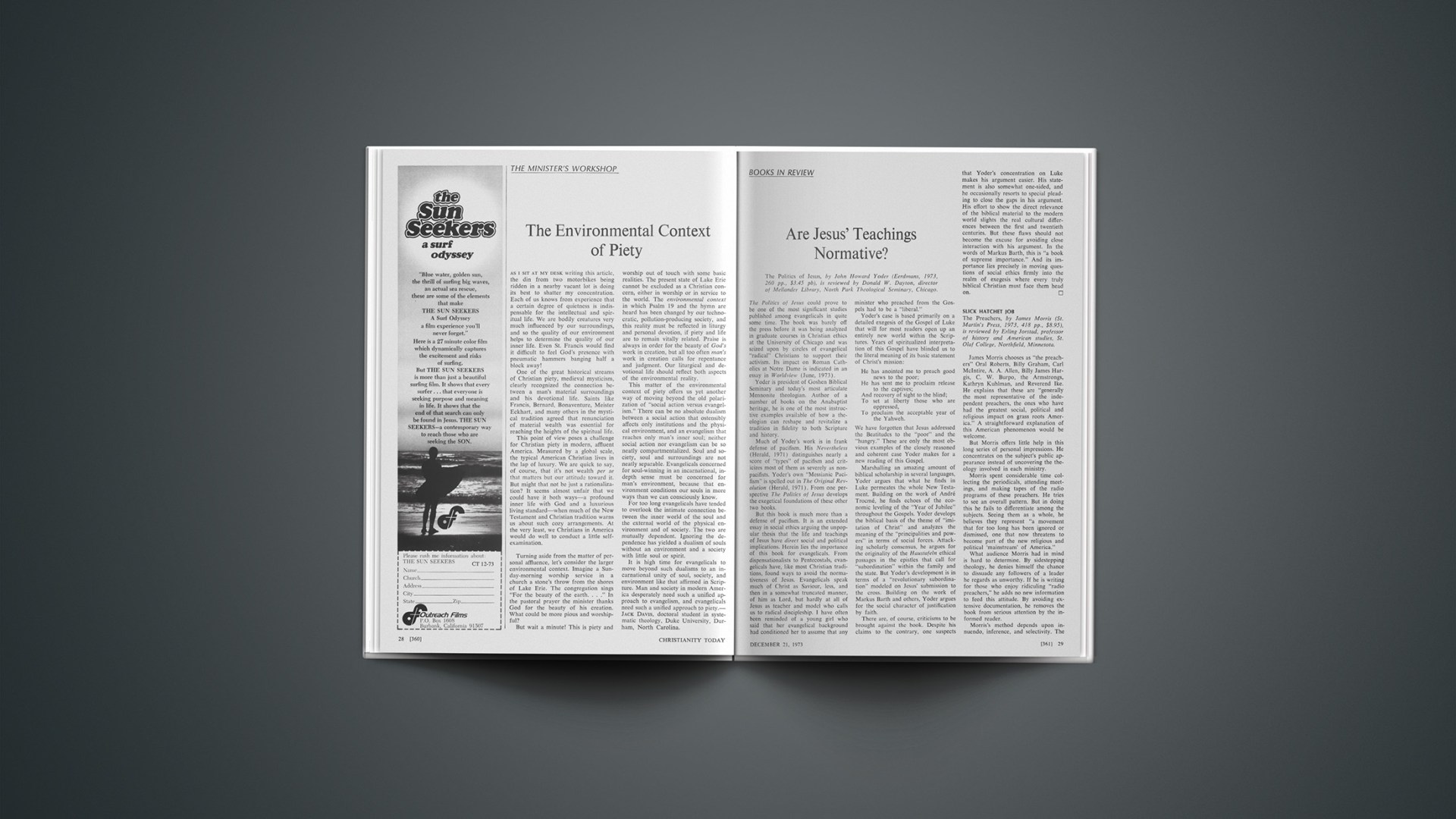As i sit at my desk writing this article, the din from two motorbikes being ridden in a nearby vacant lot is doing its best to shatter my concentration. Each of us knows from experience that a certain degree of quietness is indispensable for the intellectual and spiritual life. We are bodily creatures very much influenced by our surroundings, and so the quality of our environment helps to determine the quality of our inner life. Even St. Francis would find it difficult to feel God’s presence with pneumatic hammers banging half a block away!
One of the great historical streams of Christian piety, medieval mysticism, clearly recognized the connection between a man’s material surroundings and his devotional life. Saints like Francis, Bernard, Bonaventure, Meister Eckhart, and many others in the mystical tradition agreed that renunciation of material wealth was essential for reaching the heights of the spiritual life.
This point of view poses a challenge for Christian piety in modern, affluent America. Measured by a global scale, the typical American Christian lives in the lap of luxury. We are quick to say, of course, that it’s not wealth per se that matters but our attitude toward it. But might that not be just a rationalization? It seems almost unfair that we could have it both ways—a profound inner life with God and a luxurious living standard—when much of the New Testament and Christian tradition warns us about such cozy arrangements. At the very least, we Christians in America would do well to conduct a little self-examination.
Turning aside from the matter of personal affluence, let’s consider the larger environmental context. Imagine a Sunday-morning worship service in a church a stone’s throw from the shores of Lake Erie. The congregation sings “For the beauty of the earth.…” In the pastoral prayer the minister thanks God for the beauty of his creation. What could be more pious and worshipful?
But wait a minute! This is piety and worship out of touch with some basic realities. The present state of Lake Erie cannot be excluded as a Christian concern, either in worship or in service to the world. The environmental context in which Psalm 19 and the hymn are heard has been changed by our technocratic, pollution-producing society, and this reality must be reflected in liturgy and personal devotion, if piety and life are to remain vitally related. Praise is always in order for the beauty of God’s work in creation, but all too often man’s work in creation calls for repentance and judgment. Our liturgical and devotional life should reflect both aspects of the environmental reality.
This matter of the environmental context of piety offers us yet another way of moving beyond the old polarization of “social action versus evangelism.” There can be no absolute dualism between a social action that ostensibly affects only institutions and the physical environment, and an evangelism that reaches only man’s inner soul; neither social action nor evangelism can be so neatly compartmentalized. Soul and society, soul and surroundings are not neatly separable. Evangelicals concerned for soul-winning in an incarnational, in-depth sense must be concerned for man’s environment, because that environment conditions our souls in more ways than we can consciously know.
For too long evangelicals have tended to overlook the intimate connection between the inner world of the soul and the external world of the physical environment and of society. The two are mutually dependent. Ignoring the dependence has yielded a dualism of souls without an environment and a society with little soul or spirit.
It is high time for evangelicals to move beyond such dualisms to an incarnational unity of soul, society, and environment like that affirmed in Scripture. Man and society in modern America desperately need such a unified approach to evangelism, and evangelicals need such a unified approach to piety.—JACK DAVIS, doctoral student in systematic theology, Duke University, Durham, North Carolina.










